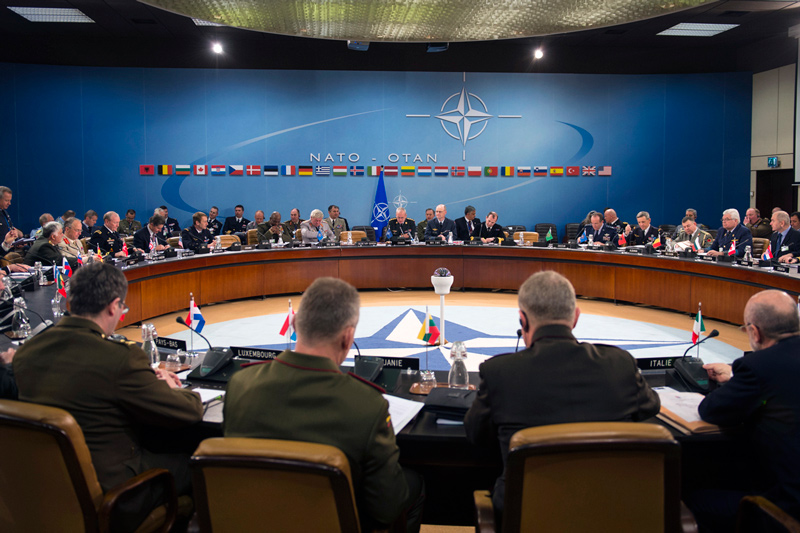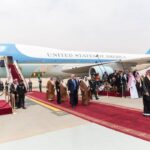- Current Events New Alabama Congressional District Selects Candidates
- Current Events Nebraska Rejects Winner-Take-All Proposal
- Citizenship Voting Under Age 18
- Citizenship Citizenship in Action
- Democratic Party Biden’s and Trump’s Recent Primary Results
- Elections Trump and Biden Win South Carolina and Michigan Primaries

President Trump Meets with NATO Leaders
Last week, while in Brussels as part of his first overseas trip, President Trump met with leaders of NATO to discuss the future of the United States’ role in the historic alliance.
Peace and Stability
NATO stands for the North Atlantic Treaty Organization. It is an alliance of 28 nations bordering the North Atlantic Ocean, including the United States, Canada, most members of the European Union (EU), and others. The purpose of the NATO organization is to work together to protect the freedom of its members, and secondarily, to protect the stability of the region. It began in April 1949, when member nations wanted a way to defend themselves against aggressive pro-communist countries after World War II. Since then, its purpose has evolved somewhat, but it remains an important alliance that has kept the peace in the region for the past 70 years.
All For One?
There were several questions about President Trump’s visit to the NATO meeting, based on his public statements while running for the White House and other things he said in the lead up to the meeting. One of President Trump’s main goals at this meeting was to get the other NATO member nations to provide more of their fair share financially. While it is true that the United States contributes far more than any other member nation to the alliance’s defense fund (roughly two-thirds of the total amount), the majority of this money has gone towards funding the wars in Iraq and Afghanistan.
Also, it is suggested that member nations devote 2 percent of their gross national product to defense spending, this is not a law, and member nations are not required to do so.
Article 5 of NATO’s treaty states that an attack against one member nation is an attack against them all. This is essentially the governing principle of NATO. In the past, Trump has hinted that the U.S. might not be willing to support member nations that don’t increase their financial contributions to the alliance. Because NATO is an important peace-keeper in global affairs, there are concerns regarding these hints.

